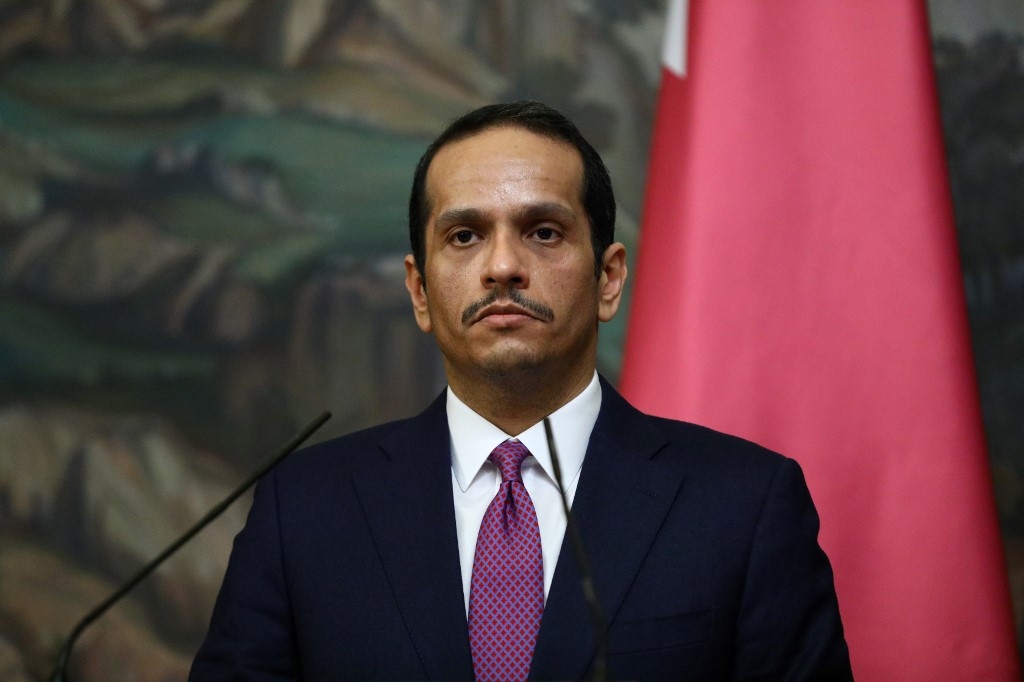Qatar sees no political obstacles to resolving Gulf crisis, foreign minister says

Qatar's foreign minister said there are no obstacles to resolving the diplomatic crisis with its Gulf neighbours, days after confirming there has been movement on easing the three-year dispute.
Speaking during a news conference with his Russian counterpart Sergei Lavrov in Moscow on Wednesday, Sheikh Mohammed bin Abdulrahman al-Thani also called for dialogue between countries in the Gulf Cooperation Council (GCC) and Iran.
Saudi Arabia led its allies the United Arab Emirates, Bahrain and Egypt to cut ties with Qatar in June 2017, saying it was too close to Iran and funding radical movements, charges Doha staunchly denies.
The four nations subsequently expelled Qataris residing in their countries, closed their airspace to Qatari aircraft and sealed their borders and ports, in some cases separating mixed-nationality families.
The Qatari foreign minister said residents in the six-member GCC were among the biggest losers in the crisis and stressed the need for the dispute to be resolved through direct dialogue.
"We will all emerge victorious from the crisis if we rebuild confidence in the Gulf Cooperation Council as a regional institution," he said.
Talks of a potential breakthrough began to circulate earlier this month with Kuwait's foreign minister saying last week that a meeting of Gulf leaders was planned for 5 January in Riyadh.
The planned talks come after US President Donald Trump's adviser Jared Kushner toured the Gulf earlier this month as part of a last-ditch effort to resolve the crisis before the administration leaves office in January.
The Qatari diplomat also pressed for dialogue to defuse tensions with Iran, saying "escalation is not in the interest of anyone".
"We call for dialogue between the Gulf countries and Iran, and we welcome any initiatives that make the region more stable."
Last month, Saudi Arabia's King Salman urged the international community to take a "decisive stance" against Tehran in order to curb its ballistic missile and nuclear programmes.
Riyadh and Tehran have been locked in a decades-long struggle for influence across the region, supporting opposing sides in conflicts from Syria to Yemen.
Tensions have also escalated between Tehran and Washington since Trump unilaterally withdrew from 2018 from a landmark nuclear deal between Iran and world powers.
In June 2019, Iranian forces shot down a US drone that Tehran claimed was flying in its airspace.
Then, in January, the US killed Qassem Soleimani, Iran's top general, at an airport in Baghdad, sparking a reprisal attack on an Iraqi military base housing US forces. At least 100 US personnel at the base were sent to hospital with traumatic brain injuries.
Middle East Eye propose une couverture et une analyse indépendantes et incomparables du Moyen-Orient, de l’Afrique du Nord et d’autres régions du monde. Pour en savoir plus sur la reprise de ce contenu et les frais qui s’appliquent, veuillez remplir ce formulaire [en anglais]. Pour en savoir plus sur MEE, cliquez ici [en anglais].





